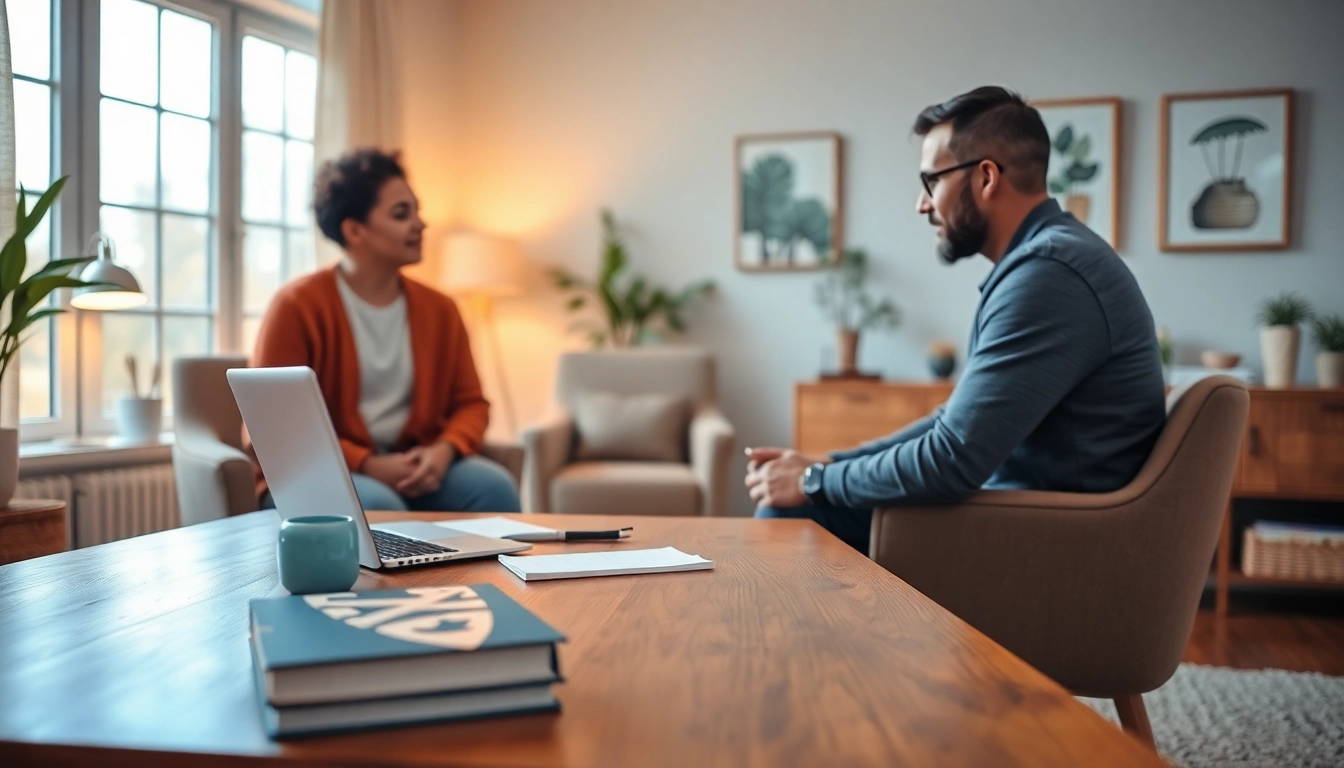Understanding Anxiety: Causes and Symptoms
What is Anxiety?
Anxiety is a normal and often healthy emotion that serves as a response to stress. However, when it becomes overwhelming or persistent, it can interfere with daily activities and lead to severe conditions categorized under anxiety disorders. Anxiety disorders are characterized by intense fear or worry leading to physical symptoms such as increased heart rate, sweating, and fatigue. These disorders can vary in severity and duration and can be triggered by various factors in life.
Common Triggers of Anxiety
Anxiety can be caused by a myriad of factors, often acting in conjunction. Some common triggers include:
- Life Events: Major life changes such as divorce, job loss, or the death of a loved one can trigger anxiety.
- Chronic Stress: Continuous exposure to high-stress environments, whether personal or professional, can lead to anxiety disorders.
- Health Issues: Conditions such as heart disease, diabetes, or asthma can exacerbate feelings of anxiety.
- Substance Abuse: Alcohol, drugs, or supplements can alter mental health and increase anxiety symptoms.
- Genetics: Family history can play a significant role in the predisposition to anxiety disorders.
Symptoms and Effects of Anxiety Disorders
Identifying anxiety is crucial for effective management. Symptoms can range from emotional signs such as feelings of dread or impending doom to physical symptoms like trembling, nausea, and rapid breathing. Effects on daily life can include avoidance behaviors, difficulties in relationships, and issues in work performance. Understanding the breadth and depth of these symptoms aids in recognizing when professional help is required.
Dealing with Anxiety: Practical Techniques
Mindfulness and Relaxation Techniques
Practicing mindfulness can be an invaluable tool in managing anxiety. Techniques such as meditation, deep breathing exercises, and progressive muscle relaxation can mitigate immediate feelings of panic and long-term anxiety. Engaging in mindfulness involves embracing the present moment without judgment. Studies show that mindfulness can significantly decrease anxiety symptoms and improve overall mental well-being.
Cognitive Behavioral Approaches
Cognitive Behavioral Therapy (CBT) has been shown to be one of the most effective treatments for anxiety disorders. CBT focuses on identifying and restructuring negative thought patterns and beliefs that contribute to anxiety. Techniques such as exposure therapy, where individuals confront their fears in a controlled environment, can help break the cycle of avoidance that often accompanies anxiety.
Physical Activity and Its Benefits
Regular physical activity is crucial not just for physical health but also for managing anxiety. Research indicates that aerobic exercise can significantly reduce anxiety levels by releasing endorphins and improving mood. Activities such as running, walking, or swimming for at least 30 minutes several times a week can lead to noticeable improvements in anxiety symptoms.
Long-term Solutions for Managing Anxiety
Creating a Support System
Establishing a strong support network is vital in combating anxiety. Friends, family, or support groups can provide emotional reassurance, practical assistance, and a sense of belonging. Openly discussing feelings and seeking help can alleviate the burdens of anxiety and create a nurturing environment for recovery.
Professional Help: Therapy and Counseling
For many individuals, seeking professional help is a crucial step in managing anxiety. Therapists and counselors provide insights, resources, and structured approaches to tackling anxiety. Sessions may include a variety of methods, including CBT, which can help patients develop coping strategies. Online therapy options have also become increasingly popular, offering convenience and accessibility.
Medication Options and Considerations
In some cases, medication can play a significant role in managing anxiety. It is essential to consult a healthcare professional to assess whether medication is suitable. Types of medications such as antidepressants, benzodiazepines, and beta-blockers are commonly prescribed. Understanding the potential benefits and side effects of these options will help individuals make informed decisions regarding their treatment.
Daily Habits to Reduce Anxiety
Maintaining a Balanced Diet
Nourishing the body with a balanced diet can have profound effects on mental health. Foods rich in omega-3 fatty acids, vitamins, and antioxidants, such as leafy greens, nuts, and fatty fish, can support brain health and reduce anxiety symptoms. Conversely, high sugar and processed foods can exacerbate anxiety levels. Keeping track of dietary habits and their effects on mood can help individuals make beneficial changes over time.
The Importance of Sleep
Sleep plays a vital role in emotional regulation. Insomnia or lack of quality sleep can heighten anxiety symptoms, leading to a vicious cycle of increased worry and poor rest. Establishing a regular sleep schedule and creating a restful environment can lead to better sleep quality and, consequently, lower anxiety levels. Techniques such as avoiding screens and relaxing before bed can help improve overall sleep hygiene.
Stress Management Techniques
Implementing stress management techniques such as organizing schedules, setting achievable goals, and practicing time management can diminish feelings of overwhelm. Engaging in hobbies, spending time in nature, or practicing gratitude can foster positive mental health and reduce daily stressors that contribute to anxiety. Mindful breathing, visualization, and journaling can also provide immediate relief during anxious moments.
Resources and Support for Anxiety
Books and Guides
Numerous self-help books and guides are available to support individuals dealing with anxiety. Titles such as “The Anxiety and Phobia Workbook” and “The Mindful Way Through Anxiety” offer practical strategies and exercises to manage symptoms effectively. Regularly revisiting these resources can provide continuous support and information during challenging times.
Online Communities and Support Groups
Connecting with others who share similar experiences can provide a sense of comfort and understanding. Online forums and support groups focused on anxiety can offer valuable resources, shared experiences, and strategies for coping. Participating in these communities can help build a support network and combat feelings of isolation.
When to Seek Professional Help
Recognizing when to seek professional help is essential for effective anxiety management. Consulting a healthcare professional is advisable when anxiety interferes with daily life, leads to debilitating panic attacks, or is accompanied by severe depressive symptoms. Early intervention can prevent further escalation and facilitate a quicker path to recovery.
Overall, effectively dealing with anxiety involves understanding its origins, developing practical coping strategies, and, if necessary, seeking professional support. Integrating mindfulness, physical activity, and proper nutrition into daily life can significantly improve well-being. By fostering a supportive network and utilizing available resources, individuals can cultivate resilience against anxiety and enhance their quality of life.















Leave a Reply